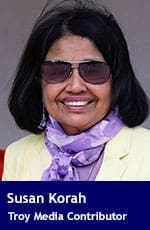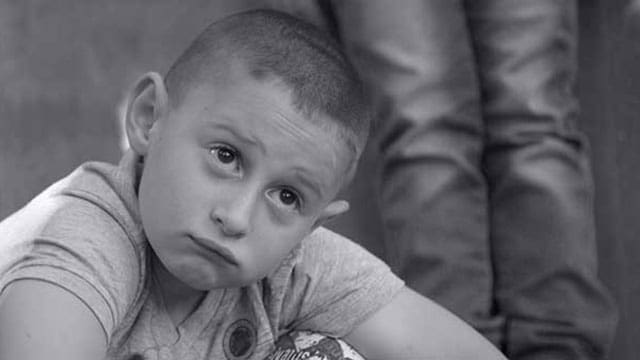Demands for aid for Armenians in Artsakh facing genocide have only been met with indifference by the international community
 Local Canadian Armenians with loved ones in the land-locked territory of Artsakh are rallying to galvanize the international community over what experts, activists and residents identify as an unfolding genocide.
Local Canadian Armenians with loved ones in the land-locked territory of Artsakh are rallying to galvanize the international community over what experts, activists and residents identify as an unfolding genocide.
“The world stays silent,” said Toronto resident Inga Emiryan. “It’s so frustrating that Canada stays silent and isn’t reacting. Why has everyone closed their eyes, ears, and mouths? The terrible pain and frustration are burning inside me.”
People are on the brink of breakdown, she said.
“Every day, I try to talk to my relatives in Artsakh,” Emiryan said. “The situation there is terrible. Finding food is impossible. People are given two loaves of bread for a whole family. But to get the bread, they have to stand in lines for five to six hours, sometimes even at night. My parents yesterday didn’t even get any bread.”
Even well-known humanitarian organizations such as the International Red Cross, Aid to the Church in Need (ACN), Caritas Armenia, and A Demand for Action have limited or no access to Artsakh.
Mario Bard, head of information for ACN Canada, confirmed that the pontifical charity currently has no operations there. The only power available right now is prayer, Bard added. “We invite our benefactors to pray so that the blockade comes to an end soon and a peaceful solution is found to this conflict,” he said.
In late August, the Armenian Catholic Eparchy (diocese) of the U.S. and Canada, led by Bishop Michael Antoine Mouradian, launched a prayer vigil and special novena for Artsakh.
“For nine days we will implore the intercession of St. Gregory of Narek (an Armenian saint who lived in the 10th century), the protection of Mary, and invoke the Holy Spirit. The same prayers will be recited by believers around the world,” the Eparchy said in a press release. The novena was posted on the website called Hozana.
Luis Moreno Ocampo, a founding prosecutor of the International Criminal Court, warned in an early August report that, without immediate intervention, the ancient Christian community in Artsakh (also known as Nagorno-Karabakh) will be eliminated from the region.
“Starvation is the invisible genocide weapon,” Ocampo said in his report. “Without immediate dramatic change, this group of Armenians will be destroyed in a few weeks.”
Ocampo’s warning refers to the dire situation facing about 120,000 Christian Armenians living in Artsakh. This mountainous territory has been a bone of contention between Azerbaijan and Armenia and has erupted into armed conflict from time to time.
Others are also sounding alarm bells that the prospect now facing the Armenians of Artsakh — elimination by starvation — has almost reached a point of no return.
Their only supply route to food, medicine, and other survival needs has been cut off since Dec.12, 2022, by a highway blockade between Artsakh and Armenia known as the Lachin Corridor.
The blockade was initiated by so-called eco-activists claiming to protest the environmental impact on mining operations but clearly acting on behalf of the authoritarian government of Azerbaijan, according to a Time magazine article of Feb. 22 this year.
On Apr. 23, after the departure of the “eco activists,” the Azerbaijani military set up a checkpoint on the Lachin corridor near the border with Armenia, tightening the noose around the necks of the Armenian population of Artsakh. The checkpoint gave Azerbaijan the ability to stop any vehicles travelling between Armenia and Artsakh.
Isolated, trapped, and cut off from life-sustaining supplies, the Armenians of Artsakh, and their compatriots scattered across the globe, have been desperately appealing for help, only to be met with indifference and inaction on the part of the international community.
Rupen Janbazian is a Canadian Armenian born and raised in Toronto but moved to Armenia in 2020 when the long-simmering tensions between Azerbaijan and Armenia erupted into a war that displaced 90,000, over half the population of Artsakh.
The former editor of a Boston-based Armenian weekly newspaper, Janbazian, currently runs the Toronto-based Torontohye monthly.
Shortly after he and his wife moved to Yerevan, he was hired as the director of communications/public relations to the Tufenkian Foundation (an organization that has been helping Artsakh since the war of 2020), a job which used to take him to Artsakh once a month. But now, the blockade of the Lachin corridor makes such trips impossible.
“Azerbaijan’s complete siege has pushed the region into a dire public health emergency,” he told me in an e-mail exchange. “Essential resources such as food and medicine are in critically short supply, and the healthcare system is teetering on the brink of collapse. The lives of the 120,000 inhabitants of Artsakh are hanging in the balance, with each passing day amplifying the urgency.”
He echoed Emiryans’ frustration at watching the tragedy unfold and not being able to help.
“The feeling of helplessness is suffocating, especially when those in power around the world condemn only in words and fail to act time and time again,” he said. “The people of Artsakh face a real threat of physical destruction, and there is a historic opportunity for international leaders to prevent another Armenian genocide.”
Susan Korah is an Ottawa-based journalist. This article was submitted by The Catholic Register.
For interview requests, click here.
The opinions expressed by our columnists and contributors are theirs alone and do not inherently or expressly reflect the views of our publication.
© Troy Media
Troy Media is an editorial content provider to media outlets and its own hosted community news outlets across Canada.


